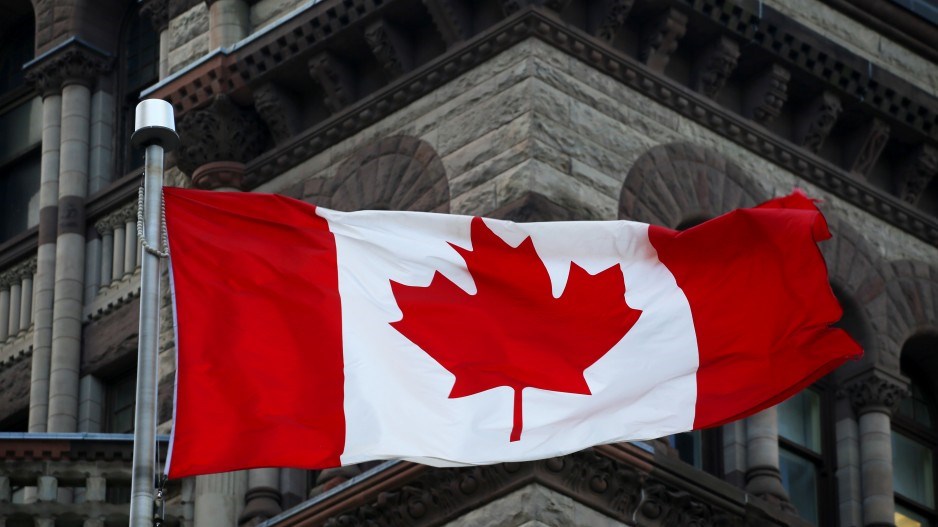Every year, just before Canada Day, Research Co. and Glacier Media conduct a survey to measure the feelings of pride for 12 institutions and features of Canadian life.
In 2023, at least seven in 10 Canadians say four things make them proud: The Canadian flag (80 per cent, up two points since 2022), multiculturalism (74 per cent, up five points), hockey (72 per cent, up four points) and the Canadian Armed Forces (70 per cent, up five points).
There are some interesting generational nuances in these top four. Pride in multiculturalism stands at 70 per cent among Canadians aged 35 to 54, slightly lower than what is observed among their counterparts aged 18 to 34 (76 per cent) and aged 55 and over (75 per cent). Hockey is a source of pride for 77 per cent of the country’s oldest adults but drops to 67 per cent among the youngest ones.
A tier below the top four, at least three in five Canadians say the following institutions or features makes them proud: Indigenous culture (66 per cent, up eight points), bilingualism (64 per cent, up five points) and the state of democracy in Canada (61 per cent, up four points).
When I first relied on this battery of questions in 2008, Indigenous culture was fifth from the bottom, with 51 per cent. Now, it is fifth from the top – with national numbers boosted by strong showings in Atlantic Canada (73 per cent), Ontario (70 per cent) and British Columbia (68 per cent).
Some regional dismay persists. Albertans are not particularly fond of bilingualism and the state of democracy in Canada, giving each one a lukewarm rating of 49 per cent. In Quebec, the results for these two items reach 68 per cent and 61 per cent, respectively.
In a lower tier, we find the two “systems.” This year, 52 per cent of Canadians say the health-care system makes them proud (down six points), while 50 per cent feel the same way about the justice system (up one point).
Every time we measure, we see Canadians becoming more emotionally detached on medical services. In 2019, the health-care system cracked the top four sources of pride with 77 per cent. This year’s results are 25 points lower. Put differently, one out of every four Canadians who felt pride in the health-care system four years ago no longer feels the same way.
There are three institutions and features of Canadian life that fail to elicit pride in half of the country’s residents: Parliament (45 per cent, unchanged), the Canadian economy (42 per cent, down seven points) and the monarchy (34 per cent, down three points).
The results for Parliament have always been influenced by political allegiance. In 2008 and 2009, few Liberal Party voters were happy with a minority Conservative government in Ottawa. In 2023, the tables flip. While 69 per cent of Liberal Party supporters in the last federal election say Parliament makes them proud, only 32 per cent of Conservative Party voters concur.
The results for the Canadian economy are particularly troubling. In 2009, during the global financial crisis and with residents of other countries struggling with high unemployment rates, more than half of Canadians (58 per cent) looked at the nation’s finances as a source of pride. In 2019, just a few months before a scheduled federal election, 80 per cent of Canadians told us that the Canadian economy made them proud. Four years later, with heightened inflationary concerns, the proportion has practically halved.
The monarchy has never challenged the flag or hockey for a spot in the most important sources of pride, but its decline has been remarkable in the past few years. In 2019, 47 per cent of Canadians said the monarchy made them proud. Now just over a third feel the same way, following a year that featured the death of a monarch and the coronation of another.
As has usually been the case, Quebec is significantly lower than the rest of Canada on looking at the monarchy as a source of pride (28 per cent).
The other striking finding is that there is no longer a significant age difference: Pride in the monarchy across all three age groups ranges from 32 per cent to 36 per cent. Canadians aged 55 and over are significantly higher than the national average on items like the flag, the Armed Forces and the state of democracy. The monarchy does not get the same consideration.
Mario Canseco is president of Research Co.
Results are based on an online study conducted from June 23 to June 25, 2023, among 1,000 adults in Canada. The data has been statistically weighted according to Canadian census figures for age, gender and region. The margin of error – which measures sample variability – is plus or minus 3.1 percentage points, 19 times out of 20.




